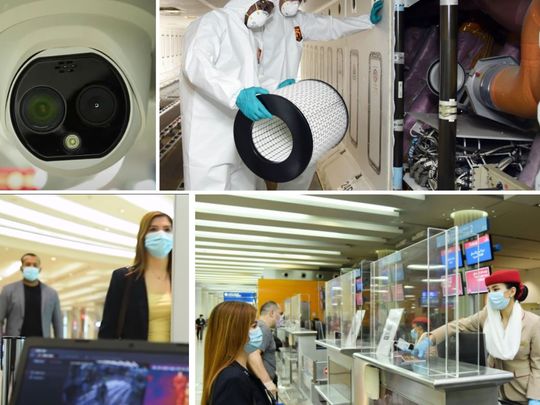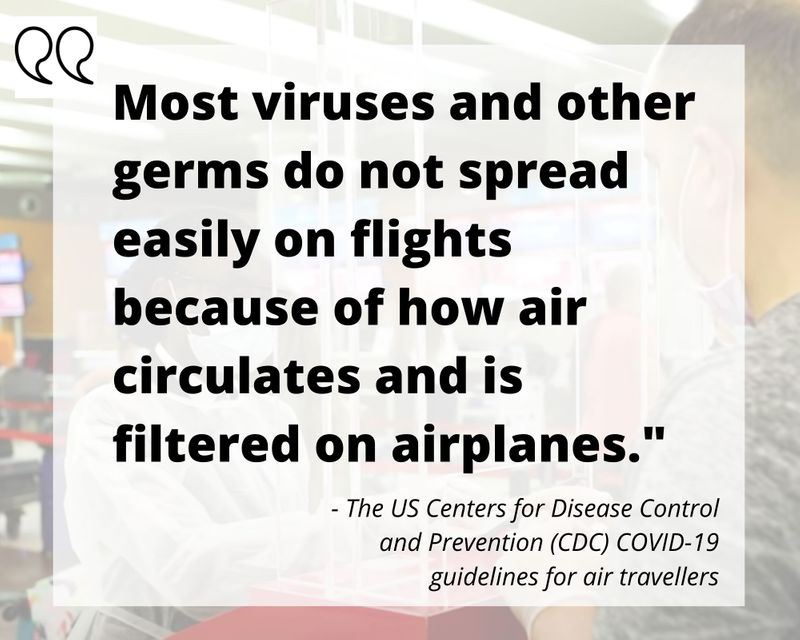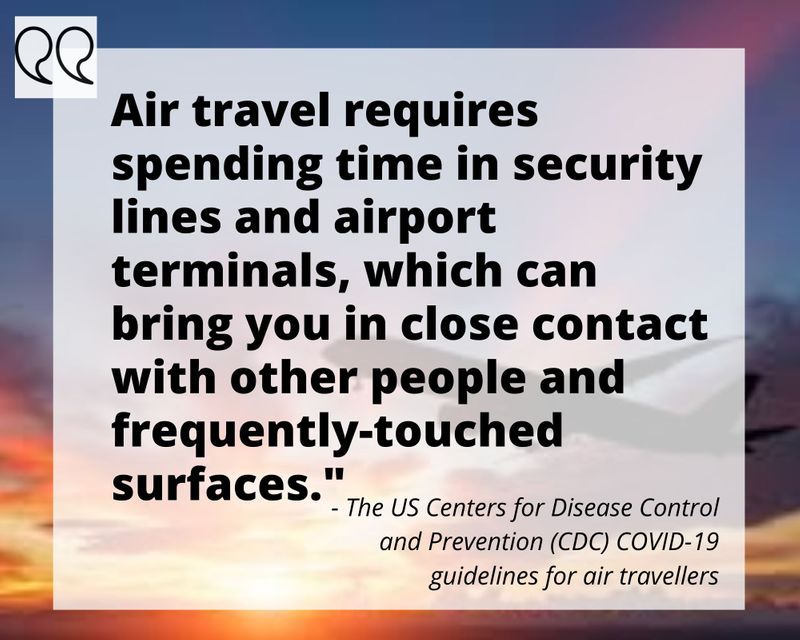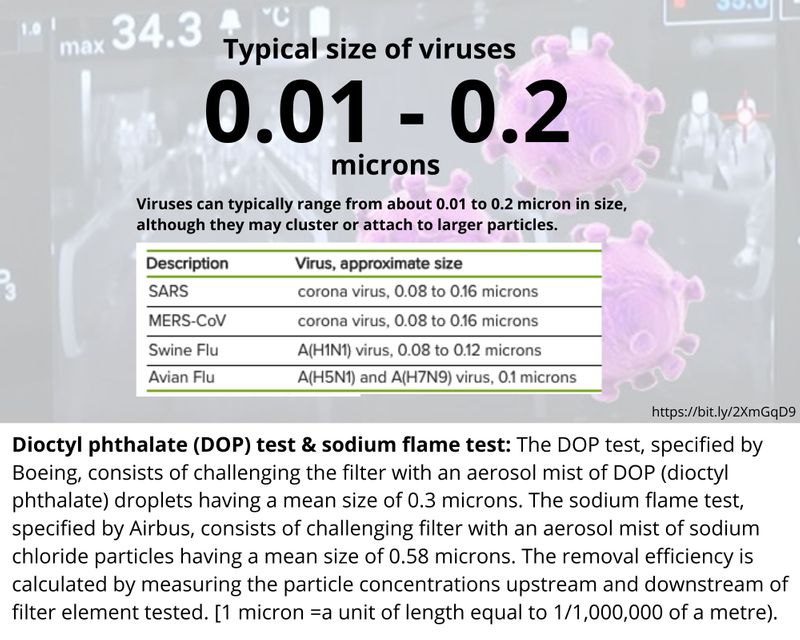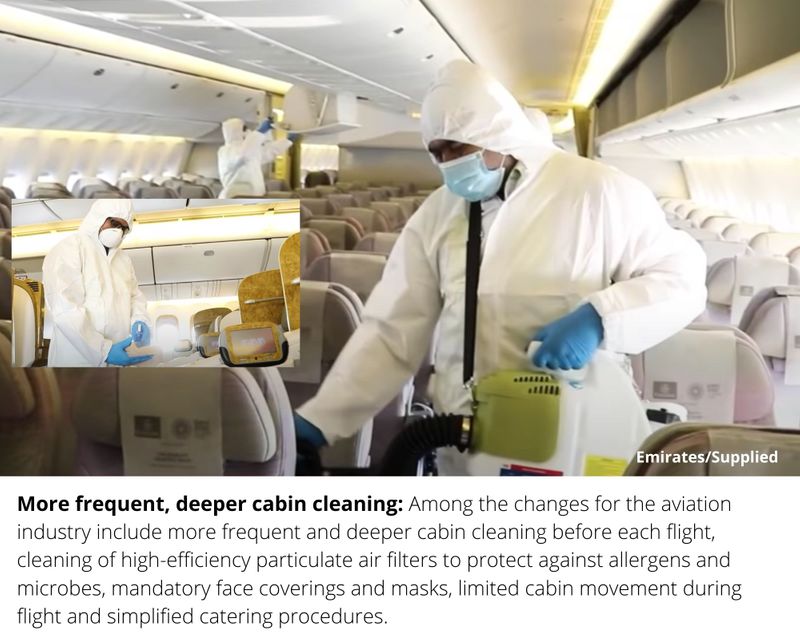COVID-19: Do airline cabin air filters eliminate viruses? Things to know before you fly again
COVID-19: Do airline cabin air filters eliminate viruses? Things to know before you fly again
CDC’S advice on air travel; what enhanced bio-safety procedures mean
Published: June 01, 2020 15:42
Jay Hilotin, Assistant Editor
Image Credit: Gulf News / Supplied
HIGHLIGHTS
- The coronavirus pandemic has grounded flights, but global aviation industry has started to show stirrings of a comeback.
- Airlines and airport operators have actively introduced enhanced health and bio-safety measures on the ground and on board.
- Airlines' major selling point will now include enhanced cabin cleaning and passenger kits that include a facemask, gloves, anti-bacterial wipes and hand sanitiser.
- The US CDC has issued an exhaustive social guideline measures in various sections.
Dubai: Do airline filters work? The short answer: Yes.
It's one question that lingers in the mind of international passengers as commercial flights start to return to the skies.
It's a valid one, but know that an affirmative answer holds many caveats. Air travel in COVID-19 times has changed remarkably.
In the foreseeable future, passengers are set to experience a "layered" approach to bio-security measures that go with flying.
Some airlines, meanwhile, say the worst is yet to come as aviation executives
don't see a return to normal in three years.
As it stands, the travel trade remains generally weak. And there are no guarantees, owing to the nature of SARS-CoV-2 virus, and the uncertainty of when a vaccine.
But there are faint stirrings of a reawakening of the global aviation industry.
And there's an expection that,
when traveller confidence is back and borders fully re-open, demand for air travel will soar.
When the unthinkable happened
The virus was first detected in Wuhan, China around December 2019, if not earlier. The information was swept under the rug. The whistleblower doctors were asked to recant their warnings and punished (then later hailed as heroes), while international passengers continued to fan out of Wuhan.
By January 29, 2020, Dubai authorities reported the UAE's
first case of coronavirus in a family of four from Wuhan city. The UAE Ministry of Health and Prevention confirmed that the infected individuals are Chinese citizens. That day, the virus has already claimed 132 lives and infected near 6,000 people across the globe.
Then the unthinkable happened: The aviation and the global economy in general ground to a halt, with 500,000 flights cancelled in February and March alone. As a result of coronavirus pandemic, air traffic around the world has come to a near halt.
In Dubai, where 1,000 or so aircraft movements are seen daily, the civil aviation industry came to a virtual standstill. By April, there were almost no commercial flights anywhere in the world. Air traffic reported went down to about 90 per cent.
Recovery period
Fast forward three months. Most people are already thinking about travel, but are not ready to fly, due to standing quarantine procedures in different countries. [I've rebooked my ticket twice already].
The US Centres for Disease Control and Prevention (CDC), meanwhile, has issued an exhaustive social guideline measures in various sections. The agency, however, stated that most viruses and other germs do not spread easily on flights.
"Most viruses and other germs do not spread easily on flights because of how air circulates and is filtered on airplanes," the CDC has said in its set of COVID-19 guidelines for air travellers.
Image Credit: Gulf News / CDC
In its COVID-19 guidelines, the CDC does not recommend following social distancing between two passengers inside a plane or keeping the middle seat unoccupied.
Experts across the health-care and tourism industries, however, say it could be 18 to 24 months before travel picks back up. In particular, air travel is seen recovering, but only slowly — unless a vaccine is out soon. Until then, travellers will be taking it all in, trying to understand the risks.
QUARANTINE
For all travellers coming from overseas, the US Center for Disease Control and Prevention (CDC) has recommended a 14-day quarantine.
In the UAE, it was announced that all travellers who enter the country must also undergo a mandatory 14-day self-quarantine.
Flying again, but not totally risk-free
There are currently emerging green shoots of recovery of the aviation industry from COVID-19. Emirates has opened commercial flight schedules on
May 21, starting with nine destinations (London, Frankfurt, Paris, Milan, Madrid, Chicago, Toronto, Sydney and Melbourne) and
Sharjah-based Air Arabia opened regular flight bookings from June 1. So did
Saudi Arabian Airlines.
The domestic aviation industry in other countries is getting back to normal, as passengers are returning to the skies.
However, the CDC noted that the air travellers were not risk-free specially in the time of the coronavirus pandemic and recommended Americans to avoid travel as far as possible.
"Air travel requires spending time in security lines and airport terminals, which can bring you in close contact with other people and frequently touched surfaces," it said.
Image Credit: Gulf News / CDC
Here’s a Q&A based on CDC recommendations:
Can flying on an airplane increase my risk of getting COVID-19?
Yes. Air travel requires spending time in security lines and airport terminals, which can bring you in close contact with other people and frequently touched surfaces. Most viruses and other germs do not spread easily on flights because of how air circulates and is filtered on airplanes.
However, social distancing is difficult on crowded flights, and you may have to sit near others (within 6 feet), sometimes for hours. This may increase your risk for exposure to the virus that causes COVID-19.
Image Credit: Gulf News / Boeing / Airbus
If I travel, what steps should I take to help reduce my chances of getting stick
- Clean your hands often.
- Wash your hands with soap and water for at least 20 seconds, especially after you have been in a public place, after touching surfaces frequently touched by others, after blowing your nose, coughing, or sneezing, and before touching your face or eating.
- If soap and water are not available, bring and use hand sanitizer that contains at least 60% alcohol. Cover all surfaces of your hands and rub your hands together until they feel dry.
- Avoid touching your eyes, nose, or mouth with unwashed hands.
- Avoid close contact with others.
- Keep 6 feet of physical distance from others.
- Wear a cloth face covering in public.
- Cover coughs and sneezes.
- Make sure you are up to date with your routine vaccinations, including measles-mumps-rubella (MMR) vaccine and the seasonal flu vaccine.
Can traveling to visit my family or friends increase my chances of getting and spreading COVID-19?
Yes. CDC recommends that you avoid all non-essential international travel because of the COVID-19 pandemic. Some healthcare systems are overwhelmed and there may be limited access to adequate medical care in affected areas.
Many countries are implementing travel restrictions and mandatory quarantines, closing borders, and prohibiting non-citizens from entry with little advance notice. Airlines have cancelled many international flights and in-country travel may be unpredictable. If you choose to travel internationally, your travel plans may be disrupted…
CDC also recommends all travelers defer all cruise ship travel worldwide.
Can travel increasee my chances of getting COVID-19?
Yes. Travel increases your chances of getting and spreading COVID-19. Before you travel, learn if COVID-19 is spreading in your local area or in any of the places you are going.
Traveling to visit family may be especially dangerous if you or your loved ones are more likely to get very ill from COVID-19. People at higher risk for severe illness need to take extra precautions.
What happens if there is a sick passenger on a flight?
Under current federal regulations, pilots must report all illnesses and deaths to CDC before arriving to a US destination.
According to CDC disease protocols, if a sick traveler is considered a risk to the public’s health, CDC works with local and state health departments and international public health agencies to contact exposed passengers and crew.
Be sure to give the airline your current contact information when booking your ticket so you can be notified if you are exposed to a sick traveler on a flight.
Image Credit: Gulf News / Emirates
Takeaways:
- Air travel won’t be the same again: In long-haul flights you fly several hours, breathing recirculated air, while putting on a mask.
- Under the new global civil aviation procedures, travel will be marked by enhanced health and safety measures on the ground and on board.
- It’s the “new normal” in flying: including home-based check-in procedures, new inflight safety rules, more stringent health procedures at border posts.
- There are faint stirrings of an awakening of aviation: in many countries domestic load factors are up 50%, as of April, according to IATA.
- More flights are added daily, though overall recovery for the industry is slow, fragile and not guaranteed.
- Recovery in aviation supports economic recovery.
Temporary biosafety measures for passengers:
[IATA recommendations]
At home:
- Provide detailed contact information before traveling for contact tracing
- Check in online
- Print baggage tags
- Get boarding pass
- Enter personal data, including health information
At departure airport:
- Terminal access minimised
- Temporary screening
- Physical distancing
- Face coverings and masks for all
- Sanitisation for touchpoint
- Self-service, touchless and biometric processes as much as possible
- Self bag drop to minimize passenger and staff interaction
At boarding gate:
- More orderly to ensure social distancing
- More self-scanning and biometrics to minimise interaction
- Limited carry-on baggage to enable smooth boarding
Inflight:
Mandatory face coverings and masks
Limiting cabin movement during flight
More frequent and deeper cabin cleaning
Simplified catering procedures
On arrival:
- Temperature screening and trained staff on arrival
- Faster baggage claim process
- Minimising contact and maintaining social distancing
Border and Customs
- Electronic declarations with mobile devices
- Control formalities using contactless options
- Social distancing in immigration halls
[Source: IATA, International Air Transport Association]


